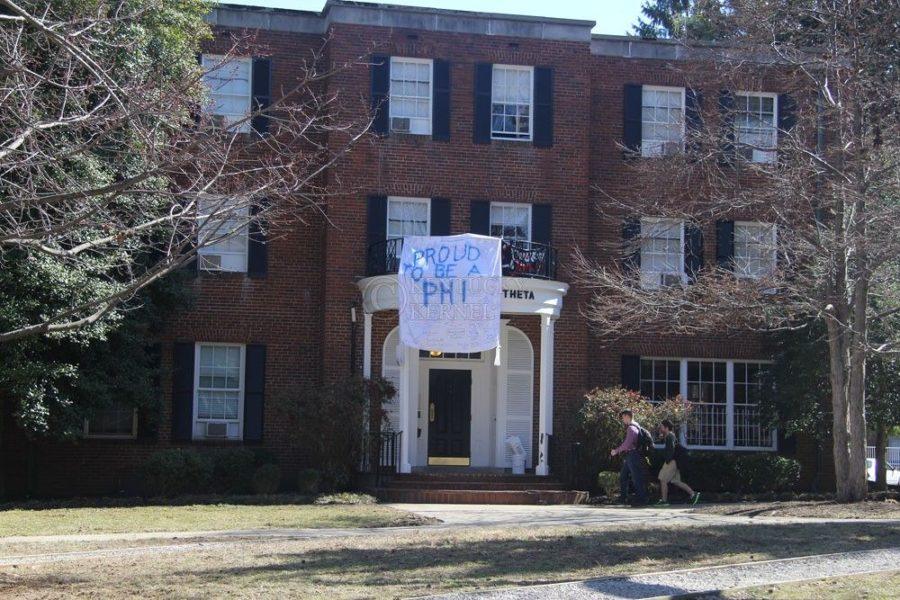Phi Delta Theta hopes to one day find a cure for ALS
April 25, 2018
Not many fraternities and sororities exist outside of the borders of the United States, but Phi Delta Theta does.
Phi Delta Theta has about 185 active chapters and colonies in over 43 states and five Canadian provinces, and all of these together have one single mission: to raise money and awareness for ALS research in hopes to one day find a cure.
The philanthropy chair for UK’s chapter of Phi Delta Theta, Isaiah Page, spoke about his fraternity’s philanthropy, the Live Like Lou Foundation.
“Phi Delta Theta has been associated with the Live Like Lou Foundation for a long time. Lou Gehrig himself was a brother of Phi Delta Theta when he attended Columbia University until 1923. We officially partnered with the Live Like Lou Foundation in November of 2017,” Page said.
But what is ALS? ALS is amyotrophic lateral sclerosis, which is also commonly known as Lou Gehrig’s disease. ALS is called Lou Gehrig’s disease because Gehrig contracted the disease and died from it in 1941.
Page also spoke about how Phi Delta Theta runs its philanthropy.
“We host restaurant nights to raise money for ALS research, small philanthropy events to raise money and awareness, and compete within the fraternity to raise money for awareness. All brothers are expected and pushed to participate in these events, whether it’s working the event, spreading the information via word of mouth or social media platforms, or to come participate in events themselves,” Page said.
Page then offered up information about his specific role as the philanthropy chair for Phi Delta Theta.
“My role for small philanthropies, such as bake sales, is to facilitate guys signing up to work shifts and help spread the word,” Page said.
The member of Phi Delta Theta are doing a great job raising money for such a life-changing disease such as ALS. It is incredible that all of the chapters of Phi Delta Theta across the nation and in Canada are uniting together to fundraise for a cure for ALS.
Modern medicine today helps people with ALS live longer. It also has to do with the age at which someone is diagnosed with ALS. A good example is theoretical physicist Stephen Hawking, who also had ALS during his lifetime. Hawking was diagnosed with juvenile-onset ALS when he was young and because he received it in his youth, it allowed him to survive to the age of 76.
It is great that Phi Delta Theta decided to raise money for this disease, especially because it is so common.



























































































































































